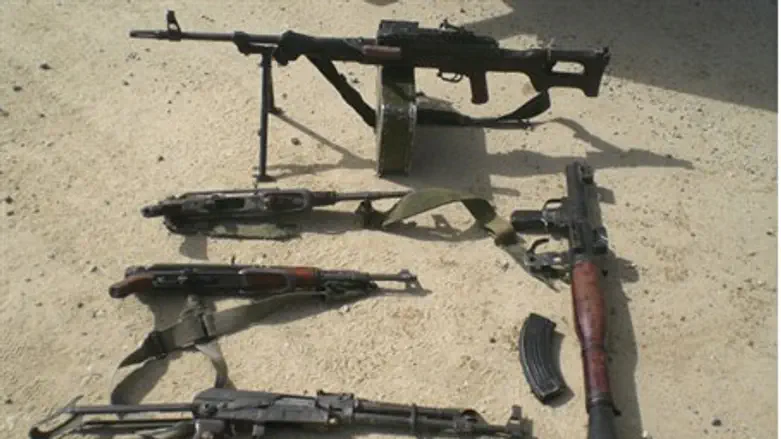
The British government is expected to announce tougher arms export measures for Israel but will not suspend all export licenses, The Telegraph reported on Wednesday.
Downing Street insiders confirmed to The Telegraph that an announcement was “imminent” but said details of the measures were still being finalized. An announcement is anticipated on Thursday.
On Monday, Downing Street said it was reviewing the sale of arms and military goods to Israel to see whether each license is appropriate in light of the conflict. But it said the government would not stop licensing military equipment to Israel outright because the country had a "legitimate right to self-defense".
Britain’s Deputy Prime Minister, Nick Clegg, later said he supported the suspension of arms exports to Israel, after Baroness Sayeeda Warsi, a British minister who was the first Muslim woman to sit in the Cabinet, resigned over the British government's policy on Gaza.
The British move comes as the former international development secretary Andrew Mitchell warned that the level of misery and carnage in Gaza was likely to poison the remaining goodwill in the region for generations.
He also said that UN schools in Gaza should not have been targeted for attacks since they were places of sanctuary.
According to The Telegraph, Mitchell said he disapproved of Warsi's decision to resign, arguing that her voice needed to be heard and that it was better to "fight your corner" in government.
"She is a great loss and a very important part of the Conservative DNA. She reaches parts rather like Boris [Johnson] that others do not reach so easily," he was quoted as having said.
He stressed that little purpose was served in allocating blame for the war in Gaza since that was unlikely to help bring peace or the restoration of long-term peace talks.
Asked on BBC Radio 4 whether he supported an arms embargo, he said, "I would have thought there is a strong case for weapons getting into this conflict to be minimized as much as possible, and I think it is right that an embargo should be considered." But he stressed no arms were currently being sold to Israel, and there was a case for helping Israel to develop a protective shield.